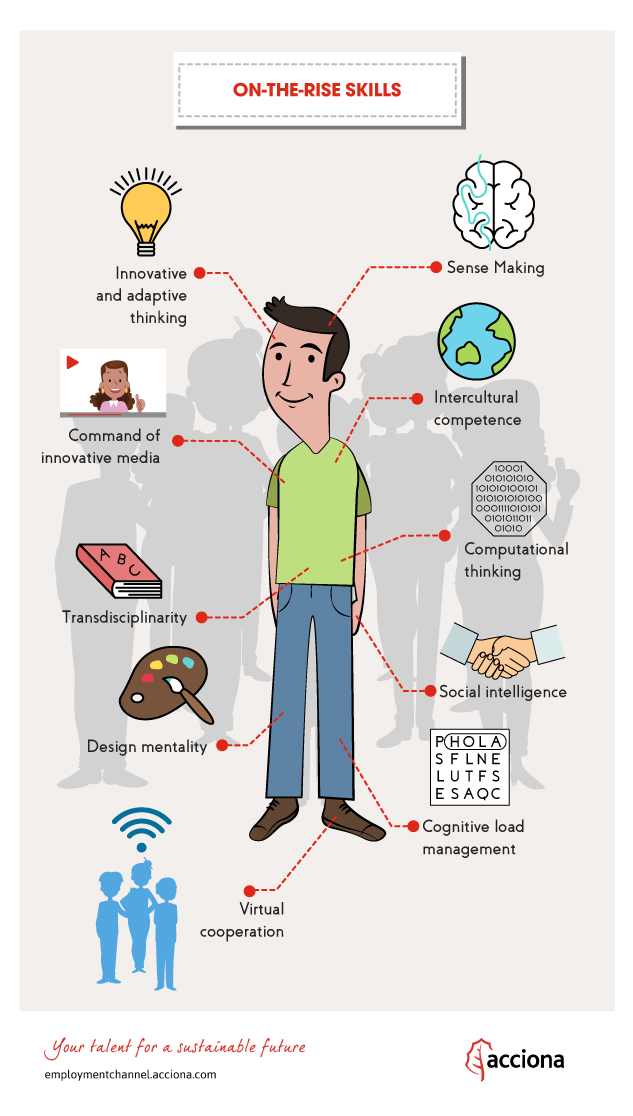We are currently heading towards the prologue of the fourth industrial revolution, which is progressing at a frenzied pace through the confluence of artificial intelligence, the impact of social media on the economic activity, mobile technologies, data science and the “Internet of Things”. Everything altogether will lead to a paradigm shift with respect to professional competences. And it won’t take long: 35% of the skills demanded by employers are expected to change by 2020.
In other words, core skills such as leadership, communication, collaboration and time management will be still relevant, but companies will also value some others of technical nature, like programming, or even non-technical, like the capability and disposition of employees to keep on learning (“learning curve”).
Among those who dared to specify and give name to these future but imminent new professional competences is the University of Phoenix, whose Institute for the Future has drawn up a decalogue of skills that will most certainly be in demand by the labour market over the next decade:
- Sense-making: The ability to provide with the right sense to the information inputs received.
- Social Intelligence: The capacity to connect with other members of the organization in a straight, profound way in order to detect and stimulate the desired interactions.
- Innovative and adaptive thinking: The ability to bypass routines or formally established rules in order to think and find solutions accordingly.
- Intercultural competence: The ability to work in different cultural environments, beyond the mere knowledge of the target language of the country where the job position is located.
- Computational thinking: The capacity to decompose large amounts of data to abstract concepts and understand the reasoning behind these.
- Command of innovative media, such as video, used by companies for persuasive communication.
- Transdisciplinarity: Command and/or ability to comprehend concepts from diverse disciplines.
- Design mentality: The ability to depict and implement goal-oriented processes. This skill requires to be able to recognize the right mentality demanded by each duty.
- Cognitive load management: The capacity to filter information according to its relevance and the ability to know how to maximize cognitive functions through the use of diverse tools and techniques.
- Virtual cooperation: The capability to become integrated into a virtual teamwork in the most productive fashion possible.

Sources: Linkedin Official Blog; World Economic Forum; CEREM; David C.McClelland and University of Phoenix.


